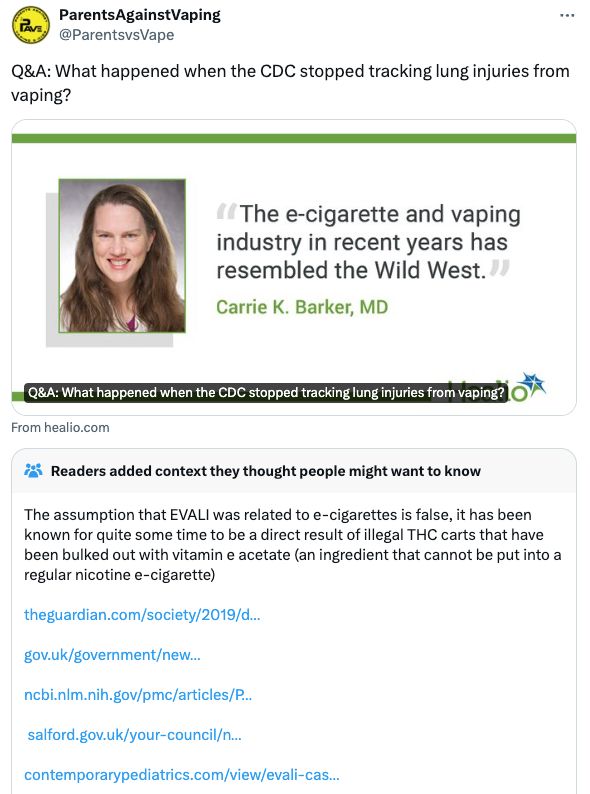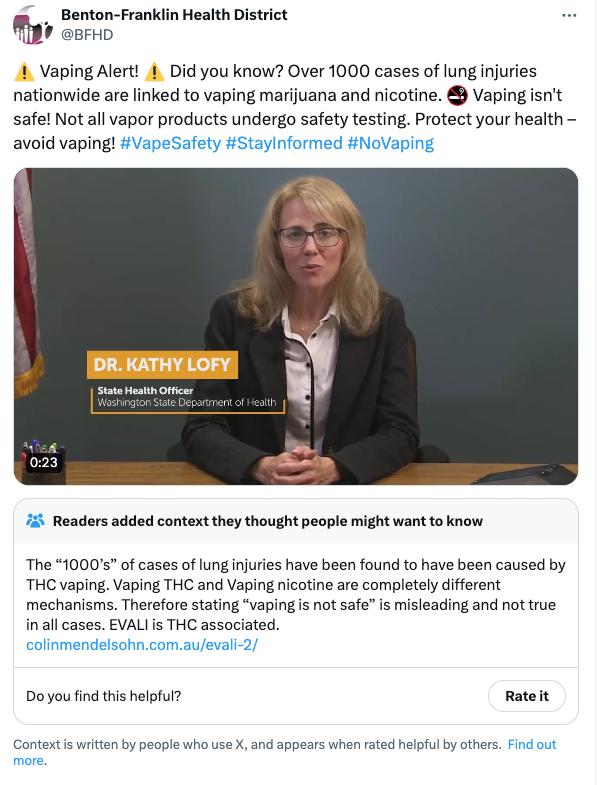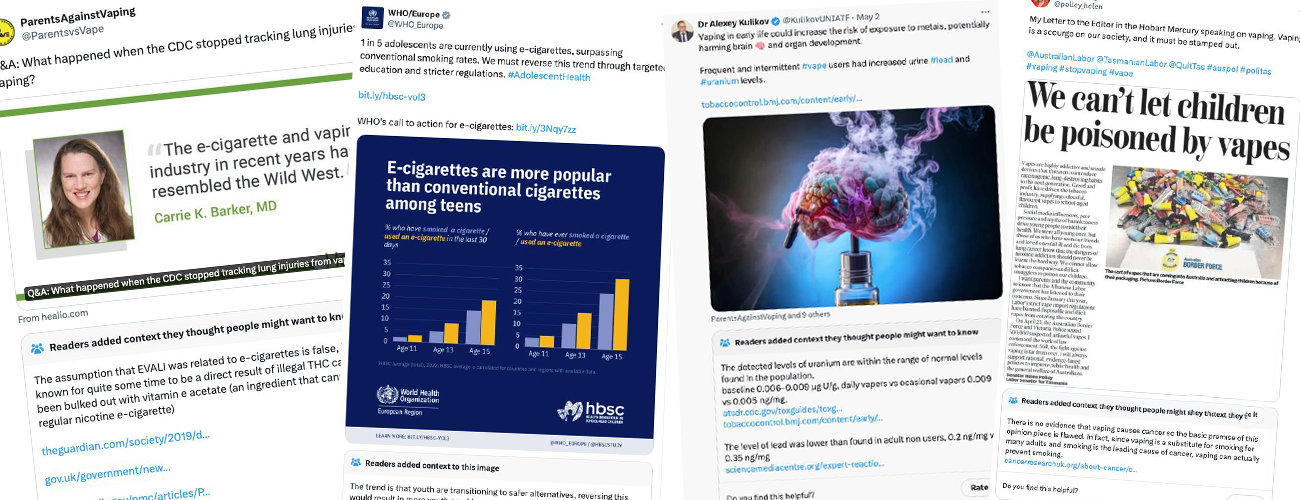Well readers, it’s happened again. People who should probably know better – many of whom call themselves defenders of public health – have once again been called out on X for spreading fake news about vaping.
This series started as an experiment. We thought that eventually, the people trying to convince the world that vaping and other safer nicotine products are the devil’s spawn would learn from their mistakes. It appears not.
While we try to write these in an amusing and engaging way, there is a serious side to it. Most of the posts we call out are from people who are generally considered authority figures. And, for the most part, readers – and particularly readers who smoke and would benefit from safer nicotine products – will be inclined to believe them. If even a small percentage of those readers continue to smoke as a result, then those who say they care about people’s wellbeing are causing significant harm.
Conversely, if trust in public health figures is eroded, then they’ll get less traction with the public when they really need it.
All of the posts we’ve highlighted today are from public health authority figures who really should know better. We hope they will learn. But we fear they will not.
Australian MP still insists vaping causes cancer, despite over a decade of evidence.
In a letter to her local newspaper – the Hobart Mercury – Australian Member of Parliament Helen Polley railed against safer alternatives to smoking. “We can’t let children be poisoned by vapes” screams the headline, despite there being no evidence of poisoning caused by vapes in Australia.
Polley went on to claim that vaping “threatens to introduce carcinogenic, lung-destroying habits to the next generation”.
The problem: there is no evidence whatsoever that vaping causes cancer.
And as so often happens, X users were on hand to correct this misinformation. This time, though, they were able to rely on citations from Cancer Research UK – a pre-eminent cancer prevention charity in the UK – which makes clear on its website that “there is no good evidence that vaping causes cancer”. For good measure, it also clarifies that nicotine is “not responsible for the harmful effects of smoking, and nicotine does not cause cancer”.

The WHO does it again – we’re sure they didn’t mean to encourage teen smoking, but it’s still a funny mistake
The WHO railed against their claim that one in five adolescents are using e-cigarettes. This claim is highly dubious in and of itself: the survey measures whether respondents used an e-cigarette in the last 30 days and ever: not regular use.
The latest figures from Action on Smoking and Health in the UK stand in stark contrast to such a claim: only 3.6% of their respondents reported using vapes more than once per week.
But what X users really took offence to was the claim by the WHO that the fact that fewer young people were smoking was a trend that should be reversed. As Community notes rightly points out, the “trend” here is young people moving away from smoking; and “reversing” such a trend actually means advocating increased youth smoking.
We suspect this wasn’t WHO’s intent, and is more likely to be a mistake. But the WHO’s track record on Community Notes leaves some room for doubt, so we thought we’d list this one anyway.

Bloomberg front group Parents Against Vaping implies that nicotine vaping was responsible for lung injuries in the US, which we have known to be false for some time.
Back in 2019, a cluster of serious lung injury cases in the US prompted understandable panic in the United States. Anti-vape campaigners were quick to point the finger at nicotine vaping, and specifically JUUL, despite having no evidence for this whatsoever.
It turned out that the cases could all be traced back to a batch of illegal cannabis products that had used vitamin E acetate in their formulation. This ingredient couldn’t have been used in nicotine vapes, as it doesn’t mix with water-based formulations.
But that hasn’t stopped astroturf groups like Parents Against Vaping from trying to use the incident to cast a shadow over safer nicotine products, and this time they implied that there had been some kind of malicious intent behind the CDC’s decision to stop tracking these kinds of lung injuries – known as EVALI.
But this was once again foiled by Community notes, making clear that the assumption that EVALI was related to nicotine vapes is false, and that this has been known for quite some time.

…and so do public health departments in the Pacific North West…
Not to be outdone, the Benton-Franklin Health District, in Washington State, made a similar claim, suggesting that incidents of lung injury are linked to vaping both marijuana and nicotine.
Once again, Community Notes was on hand to correct the mistake, pointing out that lung injuries of this kind are associated with cannabis vapes, not nicotine.

And finally, in one of the most bizarre claims we’ve ever seen about vaping…
…Dr Alexey Kulikov – an external relations officer at the WHO – seems to be claiming that vaping might be radioactive.
Yes, you heard that right, Dr Kulikov asserts in this bizarre tweet, that a study has shown that vapers have an increased level or uranium in their urine, and that as a result “Vaping in early life could increase the risk of exposure to metals, potentially harming brain and organ development”.
Now, if vaping was radioactive, we’d probably know by now. And guess what, it’s not.
Community notes pointed out that this study did not even include a control group; and that the levels of uranium they found in vapers urine was within the normal range you’d expect to find in the population.




